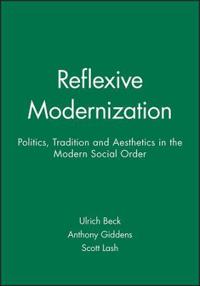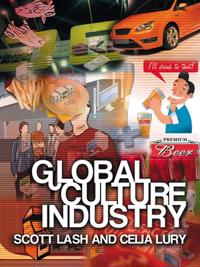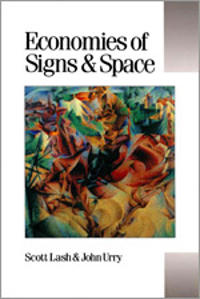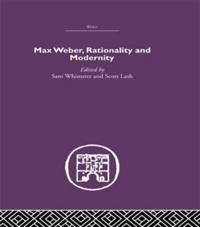China Constructing Capitalism (Inbunden)
avScott Lash, Michael Keith, Jakob Arnoldi, Tyler Rooker
ISBN: 9780415497053 - UTGIVEN: 2013-08-20The motor of globalization is not the United States, but China. 'Washington Consensus' neo-liberal individualism becomes 'Beijing Consensus' collectivist relationality. This sociology of risk spans the adventurism of Shanghai architecture, young traders and property developers; the risk-sharing of i[...]
China Constructing Capitalism (Pocket)
avScott Lash, Michael Keith, Jakob Arnoldi, Tyler Rooker
ISBN: 9780415497060 - UTGIVEN: 2013-08-20The motor of globalization is not the United States, but China. 'Washington Consensus' neo-liberal individualism becomes 'Beijing Consensus' collectivist relationality. This sociology of risk spans the adventurism of Shanghai architecture, young traders and property developers; the risk-sharing of i[...]
Modernity and Identity (Häftad)
avScott Lash, Jonathan Friedman
ISBN: 9780631175865 - UTGIVEN: 1992-04Modernity and Identity is a groundbreaking collective work which announces a radical new departure within contemporary debates on modernism and postmodernism. While dominant conceptions of both modernism and postmodernism are centered around motions of statis and fixity, for most of the otherwise q[...]
The End of Organized Capitalism (Häftad)
avScott Lash, John Urry
ISBN: 9780745600697 - UTGIVEN: 1987-09The End of Organized Capitalism argues that - despite Marx's and Weber's insistence that capitalist societies become increasingly more ordered - we now live in an era of 'disorganized capitalism'. The book is devoted to a systematic examination of the shift to disorganized capitalism in five Western[...]
Reflexive modernization - politics, tradition and aesthetics in the modern (Pocket)
avScott Lash
ISBN: 9780745612782 - UTGIVEN: 199409In this text, three social thinkers discuss the implications of "reflexive modernization" for social and cultural theory today. In the concluding sections of the book, the authors offer critical appraisals of each other's viewpoints, providing a synthetic conclusion to the work as a whole.[...]
Global Culture Industry: The Mediation of Things (Inbunden)
avScott Lash, Celia Lury
ISBN: 9780745624822 - UTGIVEN: 2007-03-31Global Culture Industries: The Mediation of Things (Häftad)
avScott Lash, Celia Lury
ISBN: 9780745624839 - UTGIVEN: 200706In the first half of the twentieth century, Theodor Adorno wrote about the 'culture industry'. For Adorno, culture too along with the products of factory labour was increasingly becoming a commodity. Now, in what they call the 'global culture industry', Scott Lash and Celia Lury argue that Adorno's [...]
Economies of Signs and Space (Häftad)
avScott Lash, John Urry
ISBN: 9780803984721 - UTGIVEN: 199312This is a novel account of social change that supplants conventional understandings of 'society' and presents a sociology that takes as its main unit of analysis flows through time and across space. Developing a comparative analysis of the UK and US, the new Germany and Japan, Lash and Urry show how[...]
Reflexive Modernisierung (Pocket)
avUlrich Beck, Anthony Giddens, Scott Lash
ISBN: 9783518117057 - UTGIVEN: 2014-03Max Weber, Rationality and Modernity (Pocket)
avSam (EDT) Whimster, Scott (EDT) Lash, Sam (EDT) Whimster
ISBN: 9780415489546 - UTGIVEN: 2008-10This book brings together leading figures in history, sociology, political science, feminism and critical theory to interpret, evaluate, criticize and update Weber's legacy. In a collection of specially commissioned pieces and translated articles the Weberian scholarship recognizes Max Weber as the [...]












